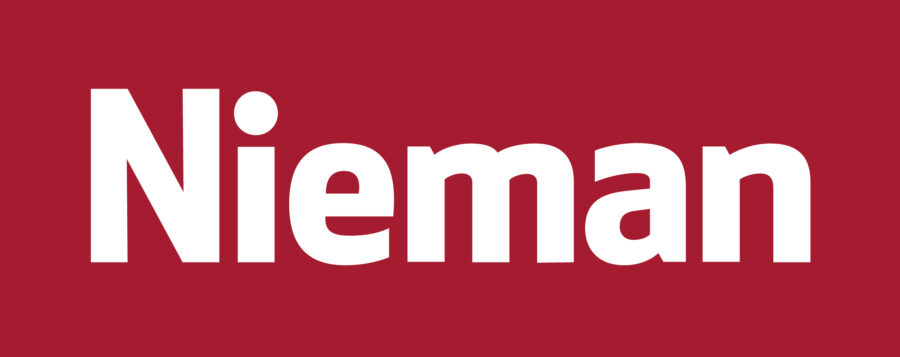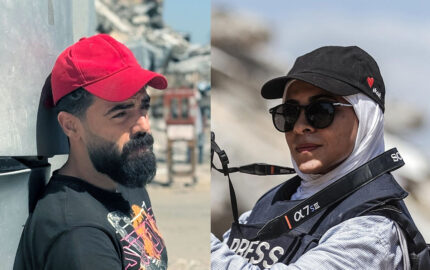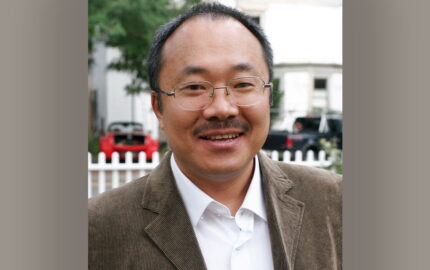CAMBRIDGE, Mass. (May 18, 2005) — Twelve U.S. journalists have been selected for the 68th class of Nieman Fellows at Harvard University. Established in 1938, the Nieman program is the oldest midcareer fellowship for journalists in the world. The fellowships are awarded to working journalists of accomplishment and promise for an academic year of study in any part of the university. More than 1,100 U.S. and international journalists from 79 countries have studied at Harvard as Nieman Fellows.
Here are the U.S. members of the Class of 2006 with their areas of interest. International Nieman Fellows will be announced in June.
CHRIS COBLER, editor, Greeley (Colo.) Tribune: How a community newspaper can use the Web to guide new and younger readers back to the paper, and how it can foster a constructive conversation about changing demographics. Cobler is the Donald W. Reynolds Nieman Fellow in community journalism. His fellowship is supported by a grant from the Donald W. Reynolds Foundation.
MARY C. CURTIS, executive features editor/columnist, The Charlotte Observer: Examine the sociological, historical and economic forces that have limited the role of minorities in the fine arts in the United States.
DEXTER FILKINS, Baghdad correspondent, The New York Times: The terrorist attacks of Sept. 11, 2001, the subsequent engagement of the Islamic world by the United States and the relationship between democracy and Islamic and Arabic culture.
CATHY GRIMES, education reporter, Walla Walla (Wash.) Union-Bulletin: To study at-risk student populations and the social service and public education systems that serve them, and explore public policymaking related to education.
DAVID HEATH, investigative reporter, The Seattle Times: Examine the influence and consequences of federal policy on medical research and on the development and marketing of prescription drugs.
MARGARET KRIZ, energy and environment reporter, National Journal: Examine the world's energy options and their impacts on economics, international relations, the environment and health.
JACOB LEVENSON, freelance reporter, Brooklyn, N.Y.: Explore the relationship between culture, social crises and political movements, with a specific emphasis on writing about that intersection through narrative.
JON PALFREMAN, independent documentary film producer, Palfreman Film Group: To explore international science, technology and health policy in relation to issues such as global climate change and to explore the use of visual media in social science research.
NANCY SAN MARTIN, world reporter, The Miami Herald: The history of conflicts, emergence of post-turmoil societies, U.S. role in development and effects of globalization.
CHARLES SENNOTT, London bureau chief, The Boston Globe: The contemporary history of religious fundamentalisms in the three Abrahamic faiths and the role religion is playing in shaping the news from Washington to the West Bank.
JEB SHARP, reporter/correspondent, Public Radio International's "The World": The history of U.S. foreign policy.
BRENT WALTH, senior reporter, The Oregonian: The causes and consequences of the widening income and wealth gaps in the United States, and the ways in which the media cover issues of economic disparity. Walth will hold the Louis Stark Fellowship for journalists who specialize in labor, workplace or related issues. Funding is provided by the Louis Stark Fellowship Fund in honor of Louis Stark, a pioneer in the field of labor reporting.
The U.S. fellows were selected by a five-person committee: Lorie Conway, independent writer and documentary film producer, Boston Film and Video Productions (Nieman Fellow 1994 and Nieman Advisory Board); Joseph McCarthy, senior associate dean and director of degree programs at Harvard's Kennedy School of Government; Norman Pearlstine, editor in chief of Time Inc. (Nieman Advisory Board); Laura Morgan Roberts, assistant professor of organizational behavior at the Harvard Business School; and Bob Giles, committee chair and Nieman Foundation curator (Nieman Fellow 1966).
The Nieman Foundation also publishes the quarterly magazine Nieman Reports and is the home of the Nieman Program on Narrative Journalism and the Nieman Watchdog Journalism Project to encourage reporters and editors to monitor and hold accountable those who exert power in all aspects of public life.
Here are the U.S. members of the Class of 2006 with their areas of interest. International Nieman Fellows will be announced in June.
CHRIS COBLER, editor, Greeley (Colo.) Tribune: How a community newspaper can use the Web to guide new and younger readers back to the paper, and how it can foster a constructive conversation about changing demographics. Cobler is the Donald W. Reynolds Nieman Fellow in community journalism. His fellowship is supported by a grant from the Donald W. Reynolds Foundation.
MARY C. CURTIS, executive features editor/columnist, The Charlotte Observer: Examine the sociological, historical and economic forces that have limited the role of minorities in the fine arts in the United States.
DEXTER FILKINS, Baghdad correspondent, The New York Times: The terrorist attacks of Sept. 11, 2001, the subsequent engagement of the Islamic world by the United States and the relationship between democracy and Islamic and Arabic culture.
CATHY GRIMES, education reporter, Walla Walla (Wash.) Union-Bulletin: To study at-risk student populations and the social service and public education systems that serve them, and explore public policymaking related to education.
DAVID HEATH, investigative reporter, The Seattle Times: Examine the influence and consequences of federal policy on medical research and on the development and marketing of prescription drugs.
MARGARET KRIZ, energy and environment reporter, National Journal: Examine the world's energy options and their impacts on economics, international relations, the environment and health.
JACOB LEVENSON, freelance reporter, Brooklyn, N.Y.: Explore the relationship between culture, social crises and political movements, with a specific emphasis on writing about that intersection through narrative.
JON PALFREMAN, independent documentary film producer, Palfreman Film Group: To explore international science, technology and health policy in relation to issues such as global climate change and to explore the use of visual media in social science research.
NANCY SAN MARTIN, world reporter, The Miami Herald: The history of conflicts, emergence of post-turmoil societies, U.S. role in development and effects of globalization.
CHARLES SENNOTT, London bureau chief, The Boston Globe: The contemporary history of religious fundamentalisms in the three Abrahamic faiths and the role religion is playing in shaping the news from Washington to the West Bank.
JEB SHARP, reporter/correspondent, Public Radio International's "The World": The history of U.S. foreign policy.
BRENT WALTH, senior reporter, The Oregonian: The causes and consequences of the widening income and wealth gaps in the United States, and the ways in which the media cover issues of economic disparity. Walth will hold the Louis Stark Fellowship for journalists who specialize in labor, workplace or related issues. Funding is provided by the Louis Stark Fellowship Fund in honor of Louis Stark, a pioneer in the field of labor reporting.
The U.S. fellows were selected by a five-person committee: Lorie Conway, independent writer and documentary film producer, Boston Film and Video Productions (Nieman Fellow 1994 and Nieman Advisory Board); Joseph McCarthy, senior associate dean and director of degree programs at Harvard's Kennedy School of Government; Norman Pearlstine, editor in chief of Time Inc. (Nieman Advisory Board); Laura Morgan Roberts, assistant professor of organizational behavior at the Harvard Business School; and Bob Giles, committee chair and Nieman Foundation curator (Nieman Fellow 1966).
The Nieman Foundation also publishes the quarterly magazine Nieman Reports and is the home of the Nieman Program on Narrative Journalism and the Nieman Watchdog Journalism Project to encourage reporters and editors to monitor and hold accountable those who exert power in all aspects of public life.


